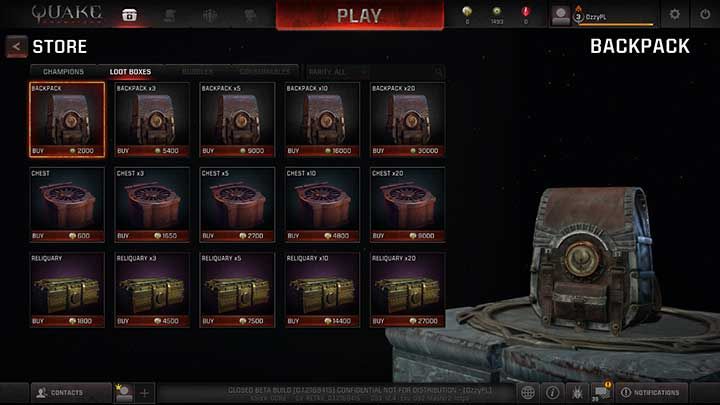Those random consumable items you get in loot boxes are coming under public scrutiny. Media reports say that the Federal Trade Commission will talk to the public later this year about issues surrounding loot boxes, particularly for children.
"A workshop could provide a forum for stakeholders representing wide-ranging perspectives, including consumer advocacy organizations, parent groups, and industry members," commission chairman Joseph Simons said in a letter to Senator Maggie Hassan (D-NH), obtained by Variety. "It also could help elicit information to guide subsequent consumer outreach, which could include a consumer alert."
Simons also did not comment on the possibility of performing a legal investigation, but said that the workshop would be a "non-law enforcement option."
The FTC has already taken measures in past rulings on behalf of children, who are considered a more vulnerable consumer audience of video games. These measures include the Entertainment Software Rating Board (ESRB), a voluntary system by which gaming companies mark the recommended age for children to use a game.
Loot boxes represent a portion of the microtransaction market that pays for the development costs of video games. What makes them especially appealing is that, like Pokémon card bundles, consumers don't know exactly what they are going to get with each purchase. People love to collect items and they also enjoy perks to level up in games faster, so restricting the use of loot boxes could not only hurt video game revenues, but also the desire of people to participate. (Although, some franchises have had issues with loot boxes -- just ask those adult players frustrated with Apex Legends' microtransaction system.)
However, if loot boxes are restricted in only the most vulnerable of audiences (children) then the rights to use these tools for game revenues would not be as hard to restrict, as long as consumers are clear on what they are buying.
Simons has been particularly concerned about the effect of video game loot boxes on children (who may not know the risks and rewards of buying these items) and on parents (who may not quite understand the games their children are playing on). She also has expressed concerns about marketing loot boxes to children, which echoes concerns that parent advocacy groups had in the 1980s about television commercials targeted at toddlers and small children.
Next Up: Bioware Is Nerfing Loot Drops In Anthem (After Accidentally Boosting Them)


